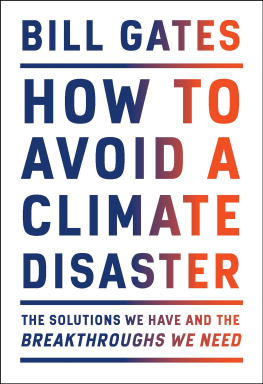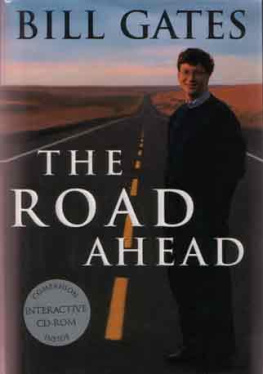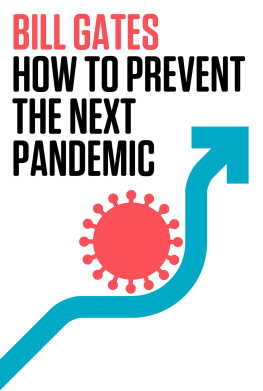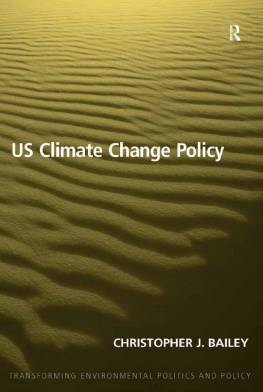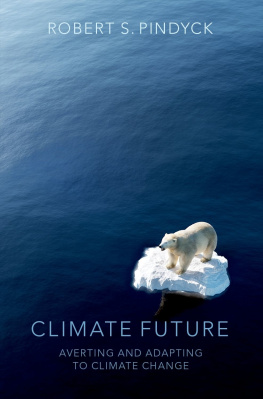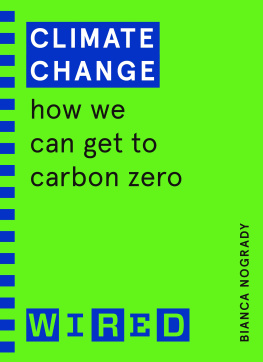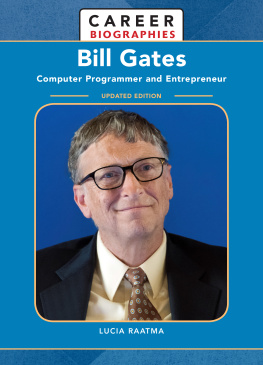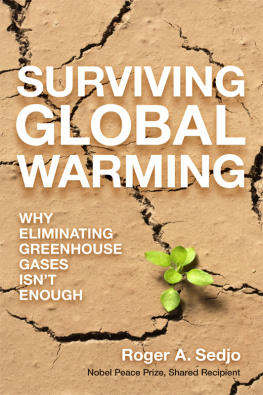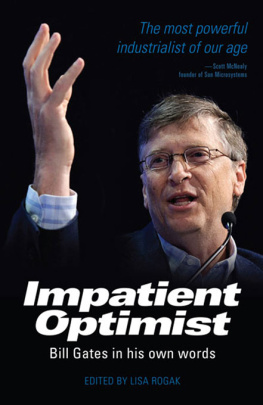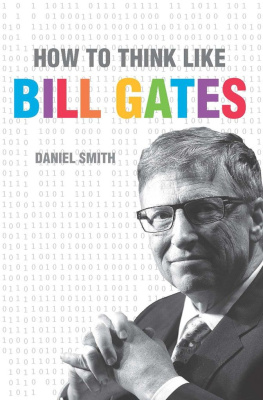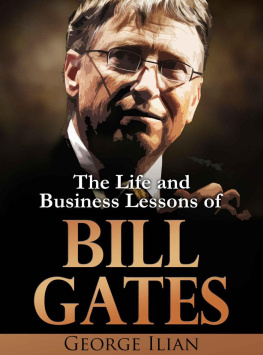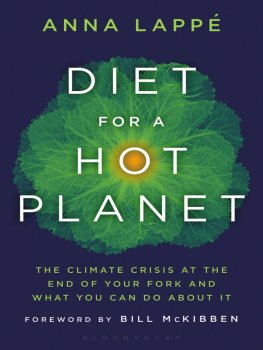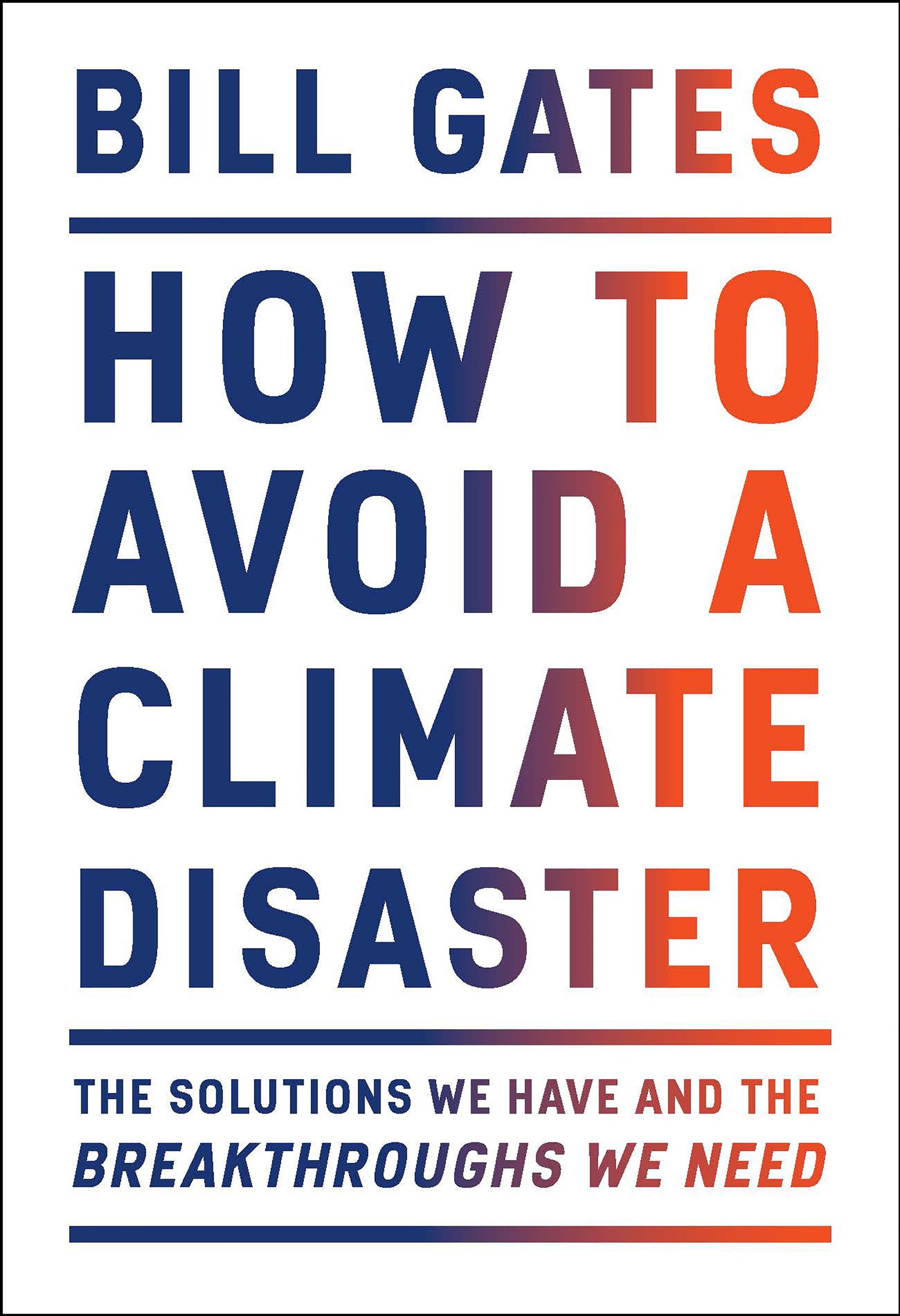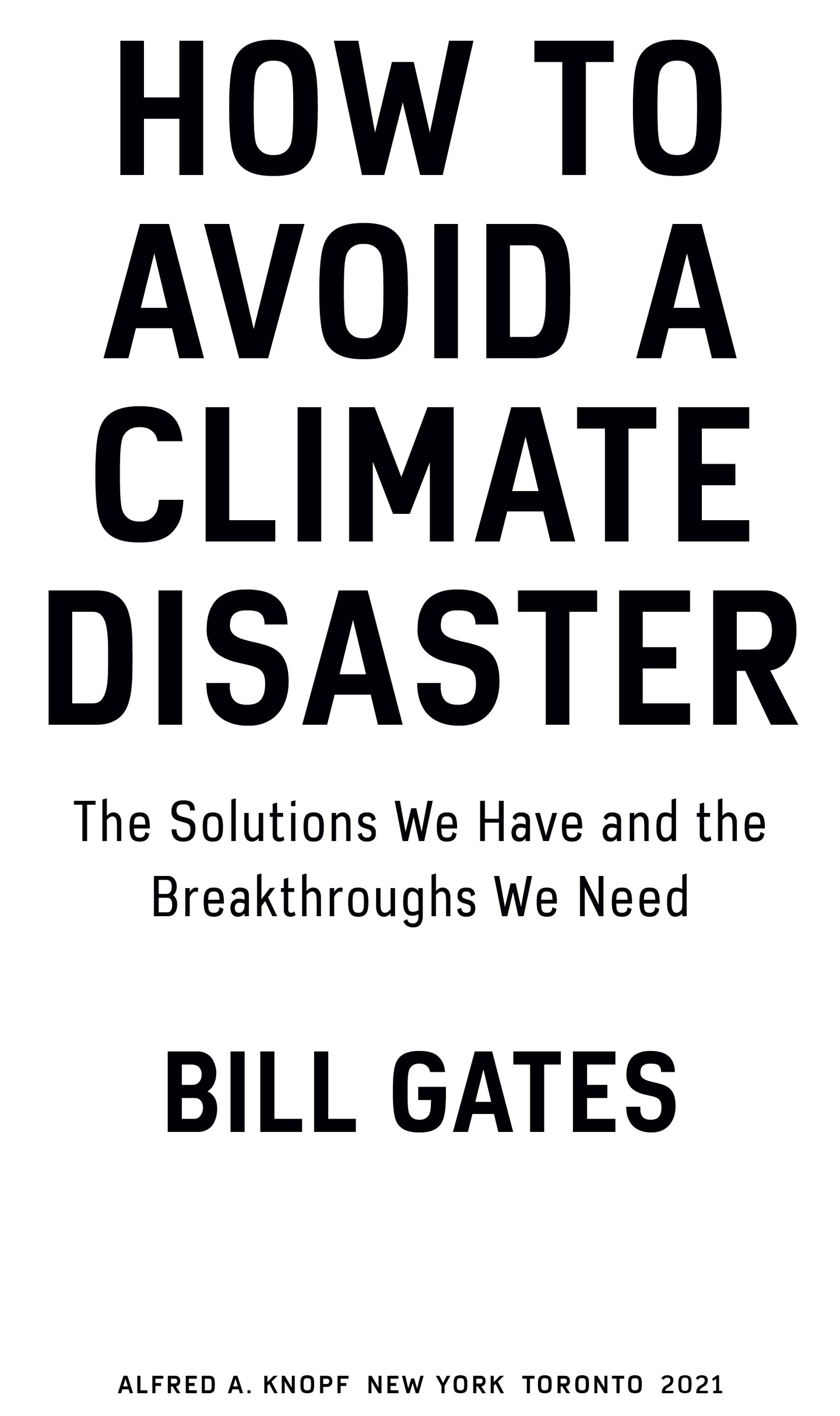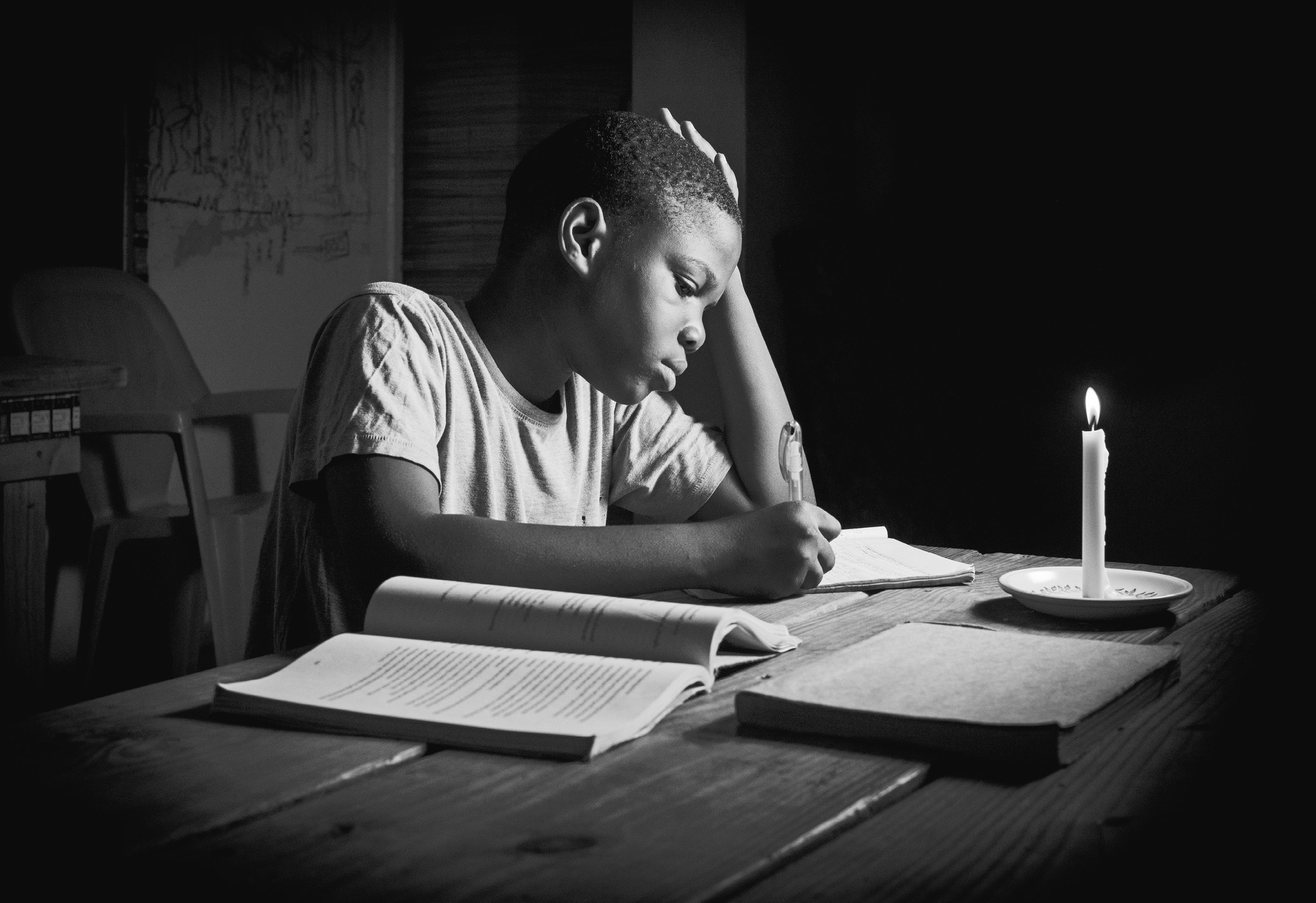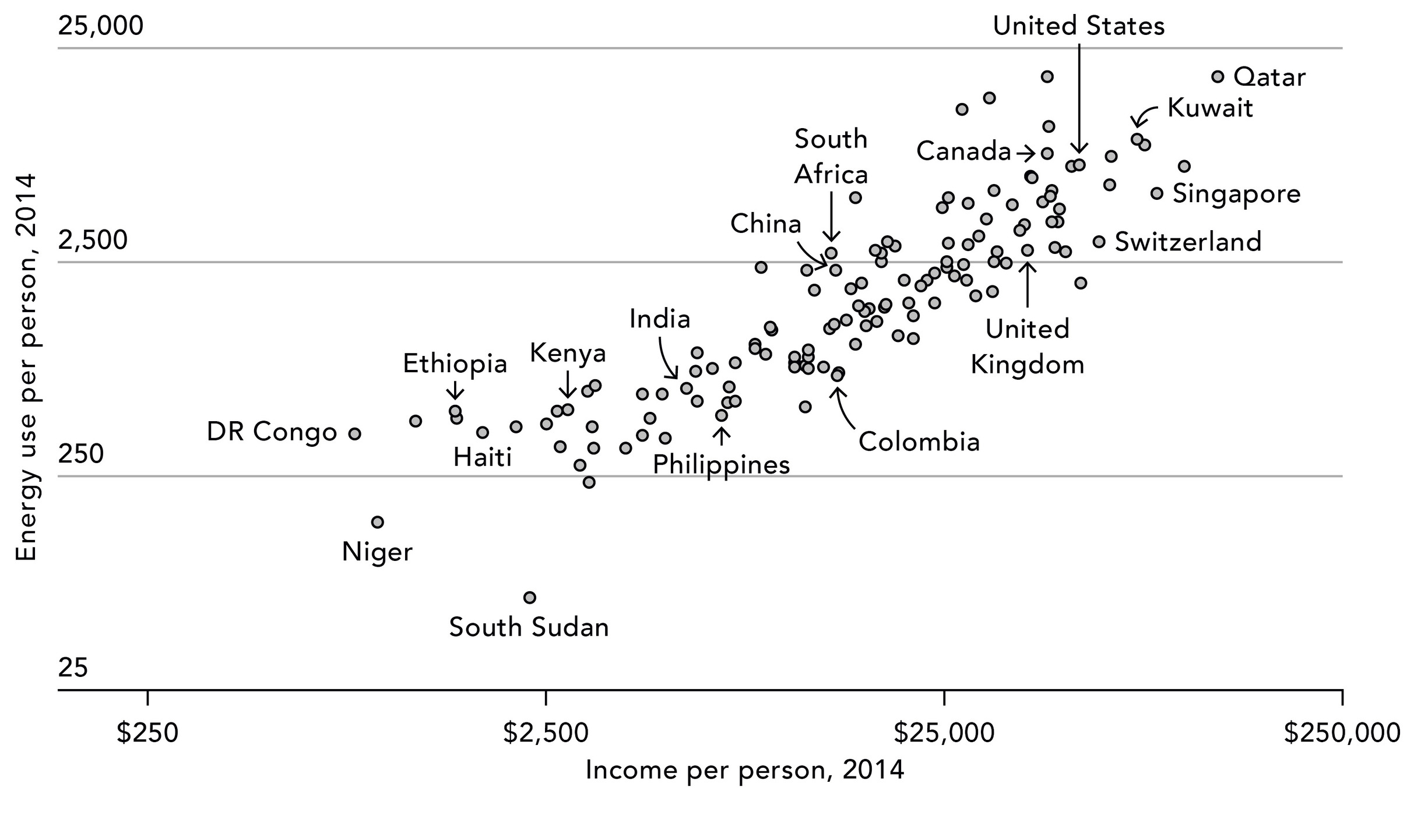Contents
Landmarks
Print Page List
ALSO BY BILL GATES
The Road Ahead
(with Nathan Myhrvold and Peter Rinearson)
Business @ the Speed of Thought
with Collins Hemingway)

THIS IS A BORZOI BOOK PUBLISHED BY ALFRED A. KNOPF AND ALFRED A. KNOPF CANADA
Copyright 2021 by Bill Gates
All rights reserved. Published in the United States by Alfred A. Knopf, a division of Penguin Random House LLC, New York, and in Canada by Alfred A. Knopf Canada, a division of Penguin Random House Canada Limited, Toronto.
www.aaknopf.com
www.penguinrandomhouse.ca
Knopf, Borzoi Books, and the colophon are registered trademarks of Penguin Random House LLC. Knopf Canada and colophon are trademarks of Penguin Random House Canada Ltd.
Cover design by John Gall
Library of Congress Cataloging-in-Publication Data
Names: Gates, Bill, 1955 author.
Title: How to avoid a climate disaster : the solutions we have and the breakthroughs we need / Bill Gates.
Description: First edition. | New York : Doubleday [2021] | Includes bibliographical references and index.
Identifiers: LCCN 2019059396 (print) | LCCN 2019059397 (ebook) | ISBN 9780385546133 (hardcover) | ISBN 9780385546140 (ebook)
Subjects: LCSH: Climatic changesPreventionTechnological innovations. | Global warmingPreventionTechnological innovations. | Greenhouse gasesEnvironmental aspects. | Environmental policy.
Classification: LCC QC903 .G378 2020 (print) | LCC QC903 (ebook) | DDC 363.738/747dc23
LC record available at https://lccn.loc.gov/2019059396
LC ebook record available at https://lccn.loc.gov/2019059397
Library and Archives Canada Cataloguing in Publication
Title: How to avoid a climate disaster : the solutions we have and the breakthroughs we need / Bill Gates.
Names: Gates, Bill, 1955 author.
Identifiers: Canadiana (print) 20190238593 | Canadiana (ebook) 20190238623 | ISBN 9780735280441 (hardcover) | ISBN 9780735280458 (EPUB)
Subjects: LCSH: Climatic changesPreventionTechnological innovations. | LCSH: Global warmingPreventionTechnological innovations.
Classification: LCC QC903 .G38 2021 | DDC 363.738/74dc23
Ebook ISBN9780385546140
ep_prh_5.6.1_c0_r0
To the scientists, innovators, and activists who are leading the way
CONTENTS
INTRODUCTION
51 BILLION TO ZERO
There are two numbers you need to know about climate change. The first is 51 billion. The other is zero.
Fifty-one billion is how many tons of greenhouse gases the world typically adds to the atmosphere every year. Although the figure may go up or down a bit from year to year, its generally increasing. This is where we are today.
Zero is what we need to aim for. To stop the warming and avoid the worst effects of climate changeand these effects will be very badhumans need to stop adding greenhouse gases to the atmosphere.
This sounds difficult, because it will be. The world has never done anything quite this big. Every country will need to change its ways. Virtually every activity in modern lifegrowing things, making things, getting around from place to placeinvolves releasing greenhouse gases, and as time goes on, more people will be living this modern lifestyle. Thats good, because it means their lives are getting better. Yet if nothing else changes, the world will keep producing greenhouse gases, climate change will keep getting worse, and the impact on humans will in all likelihood be catastrophic.
But if nothing else changes is a big If. I believe that things can change. We already have some of the tools we need, and as for those we dont yet have, everything Ive learned about climate and technology makes me optimistic that we can invent them, deploy them, and, if we act fast enough, avoid a climate catastrophe.
This book is about what it will take and why I think we can do it.
Two decades ago, I would never have predicted that one day I would be talking in public about climate change, much less writing a book about it. My background is in software, not climate science, and these days my full-time job is working with my wife, Melinda, at the Gates Foundation, where we are super-focused on global health, development, and U.S. education.
I came to focus on climate change in an indirect waythrough the problem of energy poverty.
In the early 2000s, when our foundation was just starting out, I began traveling to low-income countries in sub-Saharan Africa and South Asia so I could learn more about child mortality, HIV, and the other big problems we were working on. But my mind was not always on diseases. I would fly into major cities, look out the window, and think, Why is it so dark out there?Where are all the lights Id see if this were New York, Paris, or Beijing?
In Lagos, Nigeria, I traveled down unlit streets where people were huddling around fires they had built in old oil barrels. In remote villages, Melinda and I met women and girls who spent hours every day collecting firewood so they could cook over an open flame in their homes. We met kids who did their homework by candlelight because their homes didnt have electricity.
I learned that about a billion people didnt have reliable access to electricity and that half of them lived in sub-Saharan Africa. (The picture has improved a bit since then; today roughly 860 million people dont have electricity.) I thought about our foundations mottoEveryone deserves the chance to live a healthy and productive lifeand how its hard to stay healthy if your local medical clinic cant keep vaccines cold because the refrigerators dont work. Its hard to be productive if you dont have lights to read by. And its impossible to build an economy where everyone has job opportunities if you dont have massive amounts of reliable, affordable electricity for offices, factories, and call centers.
Melinda and I often meet children like nine-year-old Ovulube Chinachi, who lives in Lagos, Nigeria, and does his homework by candlelight.
Around the same time, the late scientist David MacKay, a professor at Cambridge University, shared a graph with me that showed the relationship between income and energy usea countrys per capita income and the amount of electricity used by its people. The chart plotted various countries per capita income on one axis and energy consumption on the otherand made it abundantly clear to me that the two go together:
As all this information sank in, I began to think about how the world could make energy affordable and reliable for the poor. It didnt make sense for our foundation to take on this huge problemwe needed it to stay focused on its core missionbut I started kicking around ideas with some inventor friends of mine. I read more deeply on the subject, including several eye-opening books by the scientist and historian Vaclav Smil, who helped me understand just how critical energy is to modern civilization.

